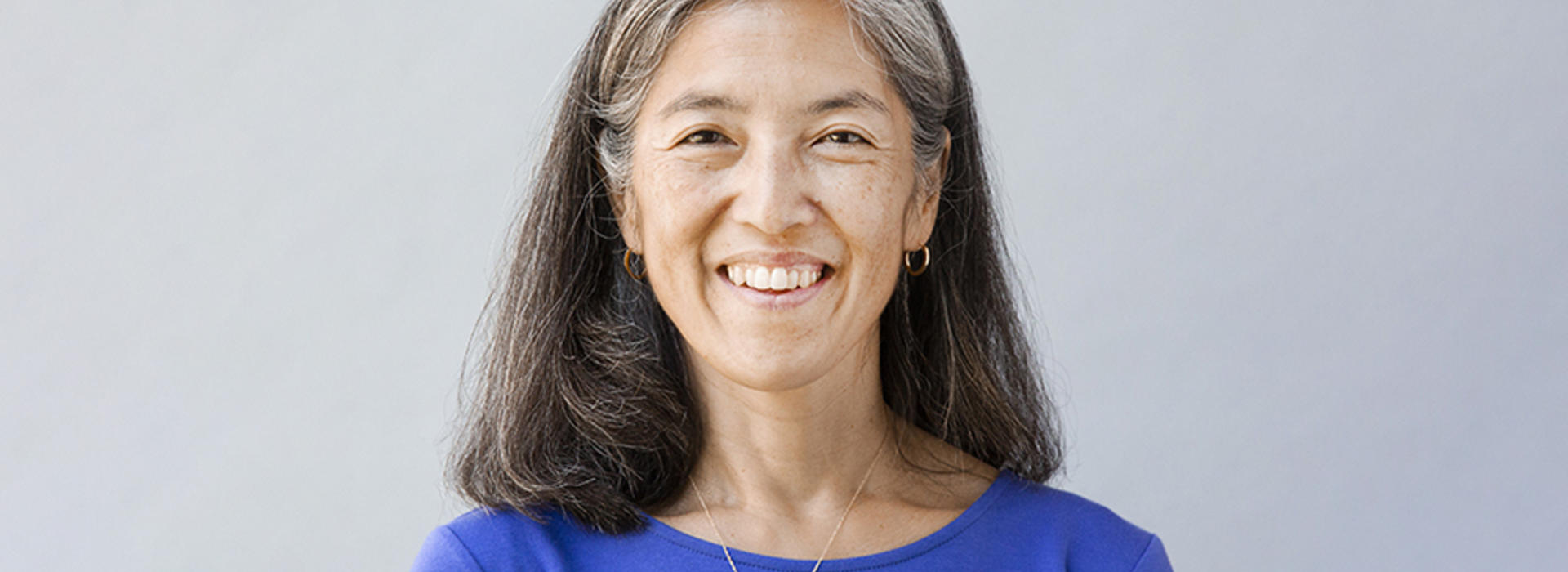
Dr. Julie Morita, ’93, Commits Career to Eliminating Health Disparities
If you seize the right opportunities and follow your passions, your career can take you incredible places. For Julie Morita, MD, a 1993 graduate of the University of Minnesota Medical School, the common thread throughout her career has been health equity and prevention.
Her story starts with hearing from her parents, both detained in Japanese internment camps during World War II, about the harsh and unjust treatment they and others endured. Their story inspired her to pursue a career in medicine, which she began after earning her medical degree from the University of Illinois at Chicago – her hometown – and completing her residency at the U of M Medical School in the pediatrics residency program. In her time since then, she has served in Chicago as the commissioner of the Department of Public Health, then joined the Robert Wood Johnson Foundation (RWJF) as executive vice president – all before, most recently, serving on President Biden’s Transition Task Force for COVID-19.
Like many resident alumni, Dr. Morita and her husband did a couples match and ended up at the U of M Medical School – Dr. Morita in pediatrics and her husband in internal medicine. Dr. Morita uses the word “impressive” to encapsulate her residency experience as she was impressed by her faculty, her fellow students and the wide range of experiences available to our residents.
“My peers were great,” Dr. Morita said. “We were working long hours, yet we felt like a team, and our faculty made it meaningful and enjoyable.” She fondly remembers her time rotating at Hennepin Healthcare and getting to work with underserved populations, which reinforced her desire to improve outcomes for those groups.
After finishing her residency, she moved to Arizona to work at a multi-specialty care clinic as a general pediatrician. “I felt very well-prepared for clinical practice because of my time at the University of Minnesota Medical School,” she said, noting how she always felt drawn to preventative care. “How do we keep kids healthy versus focusing on how to treat them when they are sick?”
In search of answers, she enrolled in a Centers for Disease Control and Prevention fellowship program in epidemic intelligence. Her two years as an epidemic intelligence service officer were spent focused on vaccine-preventable diseases. She also experienced outbreak investigations, had access to large databases to understand disease trends and risk factors and was exposed to programmatic efforts targeted at preventing disease on a population level. To her, this seemed like the perfect way to tap into her passion for preventative health, while serving the largest number of people she could.
After finishing her fellowship, Dr. Morita wanted to return home to Chicago. She reached out to the Department of Health and was promptly offered the position of Medical Director for Immunization. “I don’t think those types of opportunities come as easily nowadays,” she laughed. “I was very lucky.”
Dr. Morita spent 20 years at the Chicago Department of Public Health, where she had a front seat to some incredible opportunities like leading H1N1, Ebola and meningitis public health investigations and outbreak responses. She also spearheaded a campaign around HPV vaccinations among teenagers in Chicago, working to decrease the stigma around the vaccine.
For her last four years in Chicago, she served as the city’s first Asian American commissioner of the Chicago Department of Public Health, where she and her staff led the city through health emergencies and had the opportunity to impact population-level health in a meaningful way. She and her staff launched a program called “Healthy Chicago 2.0,” a four-year program that focused on addressing health equity and addressing root causes of disparities, centering on community engagement and collaboration.
In 2019, she was recruited to serve as the executive vice president for the RWJF, the nation’s largest foundation dedicated solely to improving the nation’s health. In this role, she oversees all programming, policy, research and communications activities. During her tenure, she’s been asking the question, “What can you do with philanthropy to meaningfully address health inequities?” This question became even more important when COVID-19 hit the United States and immediately became a study in health disparities. An RWJF-supported, Harvard School of Public Health and NPR survey helped shed light on the gross inequities contributing to the disproportionate impact COVID-19 has had on communities of color. The survey results helped Dr. Morita and others raise awareness on this important issue and advocate for policies that address structural barriers that stand in the way of many communities’ access to basic healthcare services.
As a part of her work with COVID-19, Dr. Morita has advocated for the importance of policymakers coordinating with the CDC to ensure rapid, safe and equitable distribution of the COVID-19 vaccine. In fact, one of the first things that President Biden did when he became president-elect in November was form an advisory board to ensure that policies around COVID-19 were backed by science and that equity was prioritized.
“The transition team would come to us and ask, ‘What do you think about this idea?’ Our guidance and opinions were reflected in the plan that President Biden released the day after his inauguration,” Dr. Morita said. “As a woman who has focused her career on inequities in health and prevention, seeing the focus on equity by the Biden administration is really powerful.”
While her career has taken her far from Minnesota and from clinical practice, Dr. Morita remains thankful for the experience that reinforced her calling to be a difference-maker in health equity. She said, “If the winter was just a little shorter, I might have just stayed. I’ll always value my time in Minnesota – we worked hard, learned a lot and had great experiences.”